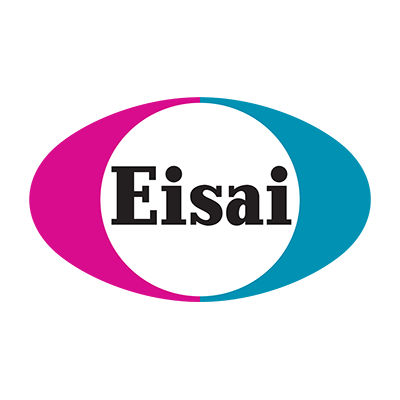EISAI CO

🇯🇵Japan
- Country
- 🇯🇵Japan
- Ownership
- Public
- Established
- 1941-12-06
- Employees
- 11K
- Market Cap
- $12B
- Website
- http://www.eisai.co.jp
Donanemab: Conflicts of interest found in FDA committee that approved new Alzheimer's drug
Donanemab, an Alzheimer’s drug by Eli Lilly, faces scrutiny over excess deaths, missing safety data, questionable efficacy, and financial conflicts among FDA advisory panel members. Despite these concerns, the FDA approved the drug in July 2023, raising questions about the approval process and the drug's true benefits and risks.
Lilly gets second approval, in Japan, for Alzheimer's drug
Eli Lilly's Alzheimer's drug Kisunla (donanemab) gains approval in Japan, following US FDA approval in July. Kisunla targets early symptomatic Alzheimer's, showing significant cognitive decline reduction in the TRAILBLAZER-ALZ 2 study. Japan's aging population makes it a key market, with dementia cases expected to reach 5 million by 2030, mostly Alzheimer's. Lilly emphasizes Kisunla's cost-effectiveness due to fixed treatment duration.
Epigenetic drugs show 375% increase in Series A venture financing in 2024
Epigenetic drugs' Series A venture financing doubled, reaching $342m YTD 2024. Moonwalk Biosciences raised $57m in Jan 2024. Marketed drugs like DNMT and HDAC inhibitors show success in blood cancers but have off-target effects. New generation drugs aim for improved specificity. FDA's approval of Vertex's Casgevy in Dec 2023 boosted investor confidence. Avenzo Therapeutics raised $150m in Mar 2024 for CDK2 inhibitor ARTS-021. Challenges include durable gene expression effects and drug delivery.
Eli Lilly's Alzheimer's drug approved in Japan
Eli Lilly's Alzheimer's drug, donanemab, approved by Japan's health ministry, offering another treatment option after Eisai and Biogen's Leqembi. Kisunla, sold in the U.S., slows memory and thinking problems by 29% but has risks of brain swelling and bleeding. Unlike Leqembi, Kisunla has finite dosing, allowing patients to stop treatment when amyloid plaques are no longer visible.
Dato-DXd Did Not Achieve Statistically Significant OS in Patients With Breast Cancer
The phase 3 trial TROPION-Breast01 found that datopotamab deruxtecan (Dato-DXd) did not achieve statistical significance in overall survival (OS) for patients with inoperable or metastatic HR+, HER2- breast cancer. Dato-DXd previously met the primary endpoint of progression-free survival (PFS) compared to chemotherapy. The trial assessed Dato-DXd's efficacy and safety against chemotherapy in patients who had progressed on endocrine therapy and at least one systemic therapy.
Molecular profiling of BRAF-V600E-mutant metastatic colorectal cancer in the phase 3
S.K., D.A.M., J.P., H.S., X.Z., P.H., T.X., and H.S. have financial ties to various pharmaceutical companies, including stock ownership and advisory roles. F.C., J.D., E.V.C., H.S.W., T.Y., R.Y., and J.T. also report consulting or advisory roles and research funding from multiple institutions and companies.
EU CHMP recommends approval of Merck's Keytruda regimens as treatment for patients
Merck announced CHMP positive opinions recommending Keytruda approval for first-line treatment of advanced or recurrent endometrial carcinoma and for locally advanced cervical cancer. These recommendations await European Commission review for EU marketing authorization, expected in Q4 2024.
Investing in This Healthcare Stock Could Be Like Catching Nvidia at the Dawn of the AI Boom
OpenAI's ChatGPT release in 2022 boosted AI euphoria, benefiting Nvidia. Eli Lilly, the 'Nvidia of the GLP-1 and weight loss space,' is poised for growth with its GLP-1 medicines, Mounjaro and Zepbound, and its Alzheimer's candidate, donanemab. Lilly's partnership with OpenAI aims to leverage generative AI for healthcare breakthroughs.
Revolution or mirage? Controversy surrounds new Alzheimer's drugs
Two new Alzheimer's drugs, lecanemab and donanemab, spark controversy over their effectiveness and cost, with some experts seeing them as a breakthrough and others as a disappointment. The drugs reduce cognitive decline by about 30% but come with risks and high costs, leading to differing national approvals. Critics argue the benefits are minimal, while supporters believe they offer crucial extra months of autonomy.
UK MHRA To Retain Multiple Approval Pathways From 2025 - Pink Sheet
Article sent to my@email.address. All fields required; separate multiple recipients with a semicolon. Active subscribers access full article; others directed to abstract.
© Copyright 2024. All Rights Reserved by MedPath
